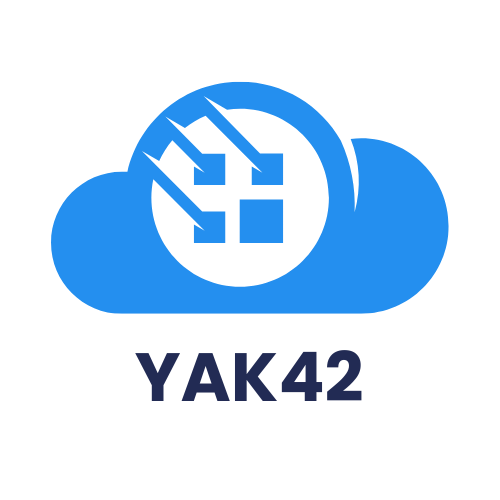Table of Contents
ToggleIn today’s fast-paced digital world, businesses can’t afford to be weighed down by clunky hardware and outdated systems. Enter Infrastructure as a Service (IaaS), the superhero of cloud computing that swoops in to save the day. With IaaS, companies can ditch the hassle of managing physical servers and instead rent the computing power they need, all while sipping coffee in their pajamas.
Imagine having the flexibility to scale up or down with just a few clicks—it’s like having a magic button for your IT needs. IaaS offers a buffet of resources, from storage to networking, allowing businesses to customize their infrastructure without breaking the bank. So why wrestle with hardware when you can embrace the cloud and let IaaS do the heavy lifting?
Overview of IaaS (Infrastructure as a Service)
Infrastructure as a Service (IaaS) provides a virtualized computing environment over the internet. Businesses benefit from on-demand computing resources such as virtual machines, storage, and networks. With IaaS, companies no longer manage physical hardware. That reduces the complexity and cost associated with maintaining servers and data centers.
Flexibility stands out as a key feature of IaaS. Organizations can easily scale resources according to demand, ensuring they only pay for what they use. This capability supports varying workloads, enabling faster responses to market changes. Additionally, customization options allow businesses to configure their environments and deploy applications tailored to specific needs.
A cost-effective approach emerges with IaaS. Traditional infrastructures involve high upfront investments and ongoing maintenance costs. IaaS eliminates these expenses by offering a pay-as-you-go model. Companies gain immediate access to advanced technology without the burden of ownership.
Security presents another advantage of IaaS. Providers often implement robust security measures, including data encryption and regular backups. In many cases, IaaS solutions enhance security postures compared to in-house systems.
Reliability and performance also characterize IaaS offerings. Most providers leverage multiple data centers and advanced redundancy techniques to ensure uptime. This setup helps mitigate risks associated with hardware failures or outages.
Companies considering IaaS often find numerous providers in the market. Established companies like Amazon Web Services, Microsoft Azure, and Google Cloud Platform dominate. Each offers distinct features, pricing models, and support services. Exploring various options assists companies in finding the right fit for their specific requirements.
Key Features of IaaS
IaaS offers several key features that empower businesses to optimize their operations effectively.
Scalability and Flexibility
Scalability defines IaaS. Users can adjust computing resources quickly to meet varying demands. Scaling up or down often takes just a few clicks. Organizations benefit from the ability to respond to fluctuating workloads without incurring unnecessary costs. Flexibility extends to resource types; businesses can select storage options and virtual machines that suit their needs. Limited physical infrastructure allows for rapid testing and deployment of new applications. This adaptability makes IaaS an essential component of modern IT strategies.
Cost Efficiency
Cost efficiency is a significant advantage of IaaS. Businesses pay solely for the resources they utilize, eliminating waste associated with underutilized hardware. The pay-as-you-go model reduces the burden of large upfront investments. Ongoing maintenance costs vanish since providers manage the physical infrastructure. Budgeting becomes more predictable with a clear pricing structure. Moreover, organizations can reallocate savings towards innovation or other critical areas. Investing less in infrastructure encourages faster growth and development in their operations.
Advantages of IaaS
IaaS provides numerous advantages for businesses looking to optimize their IT infrastructure. These benefits enhance operational efficiency and promote growth.
Resource Management
Resource management becomes simpler with IaaS. Organizations gain the ability to easily provision and deprovision virtual machines based on demand. Real-time resource allocation allows businesses to avoid over-provisioning and under-utilization. Cost reduction occurs as companies pay only for the services they utilize. IaaS also enables automatic scaling, which adjusts resources during peak traffic times. This adaptability ensures businesses maintain performance and meet customer expectations without excess costs. Moreover, detailed usage metrics help organizations monitor performance and optimize expenses, contributing to better overall resource management.
Security and Compliance
Security and compliance stand out as pivotal benefits of IaaS. Robust measures like data encryption, firewall protection, and security patches are typically implemented by IaaS providers. These strategies elevate security beyond many in-house systems. Compliance with regulations, such as GDPR and HIPAA, gets facilitated by utilizing trusted IaaS providers. Regular backups and disaster recovery options further enhance data protection categories. Additionally, continual security monitoring by specialized teams helps mitigate risks. Organizations can focus on core functions while relying on a secure infrastructure, all without significant investment in on-site security measures.
Leading IaaS Providers
IaaS features various providers, each offering distinct capabilities and pricing to address different business requirements. Below are three prominent players in the IaaS market today.
Amazon Web Services (AWS)
AWS stands as a leading provider in the cloud services arena. Offering a comprehensive set of tools, AWS allows businesses to deploy applications easily and manage their infrastructure efficiently. Its Elastic Compute Cloud (EC2) service provides scalable computing resources. Users can access a wide range of instance types catered to varying workloads. AWS also includes advanced networking features, enabling seamless integration with existing systems. Regular updates ensure that AWS remains at the forefront of technological advancements, making it a preferred choice for many enterprises.
Microsoft Azure
Microsoft Azure delivers a robust IaaS solution, well-suited for organizations utilizing existing Microsoft products. Integrating easily with Windows-based environments enhances user experience. Azure provides virtual machines optimized for diverse departments, accommodating various operating systems. Moreover, Azure’s hybrid capabilities allow businesses to connect on-premises infrastructures with cloud resources. Its strong security features, including multi-layered protection, help maintain data integrity and compliance. Moreover, a range of analytics tools aids in monitoring performance and optimizing costs.
Google Cloud Platform (GCP)
GCP ranks among the top providers, recognized for its data analytics and machine learning capabilities. Businesses benefit from high-performance computing resources available through Google Compute Engine. GCP emphasizes scalability and customizability, allowing users to adjust resources according to specific needs quickly. With a commitment to renewable energy, GCP stands out for its environmentally conscious approach. Enhanced security protocols, such as data encryption and identity management, further bolster its offerings. Additionally, GCP’s seamless integration with data analytics tools enables organizations to extract valuable insights from their data.
Use Cases for IaaS
IaaS plays a crucial role across various industries by providing scalable resources that adapt to specific needs and requirements. Here are two prominent use cases that illustrate the effectiveness of IaaS.
Startup Environments
Startups often face limitations in resources and budgets. Infrastructure as a Service allows them to launch applications and services without heavy upfront investments. Immediate access to virtual machines and storage empowers startups to focus on product development instead of managing hardware. Scalability becomes vital, as they can easily adjust resources based on user demand, whether during launch or peak usage. IaaS helps minimize expenses by enabling pay-as-you-go pricing models, which are crucial for new ventures. This flexibility supports rapid growth and innovation, making IaaS an attractive option for startups.
Enterprise Solutions
Large enterprises benefit from IaaS by enhancing their operational efficiency. Organizations leverage IaaS to handle fluctuating workloads, ensuring resources align with real-time demands. Bulk deployment of virtual machines simplifies testing and development processes, speeding up project timelines. IaaS also facilitates disaster recovery solutions, allowing enterprises to maintain uptime during unexpected disruptions. Compliance with industry regulations, such as GDPR and HIPAA, becomes manageable through the built-in security protocols offered by IaaS providers. Companies can realize significant cost savings by eliminating the need for extensive physical infrastructure.
Conclusion
IaaS stands out as a transformative solution for businesses seeking flexibility and efficiency in their IT infrastructure. By leveraging cloud-based resources, organizations can focus on growth without the burden of managing physical hardware. The scalability and cost-effectiveness of IaaS empower companies to adapt to changing demands seamlessly.
With robust security measures and compliance support, IaaS not only enhances operational performance but also protects sensitive data. As businesses increasingly turn to cloud solutions, IaaS providers like AWS, Microsoft Azure, and Google Cloud Platform offer diverse options tailored to various needs. Embracing IaaS could be the key to unlocking a more agile and innovative future for organizations across industries.







